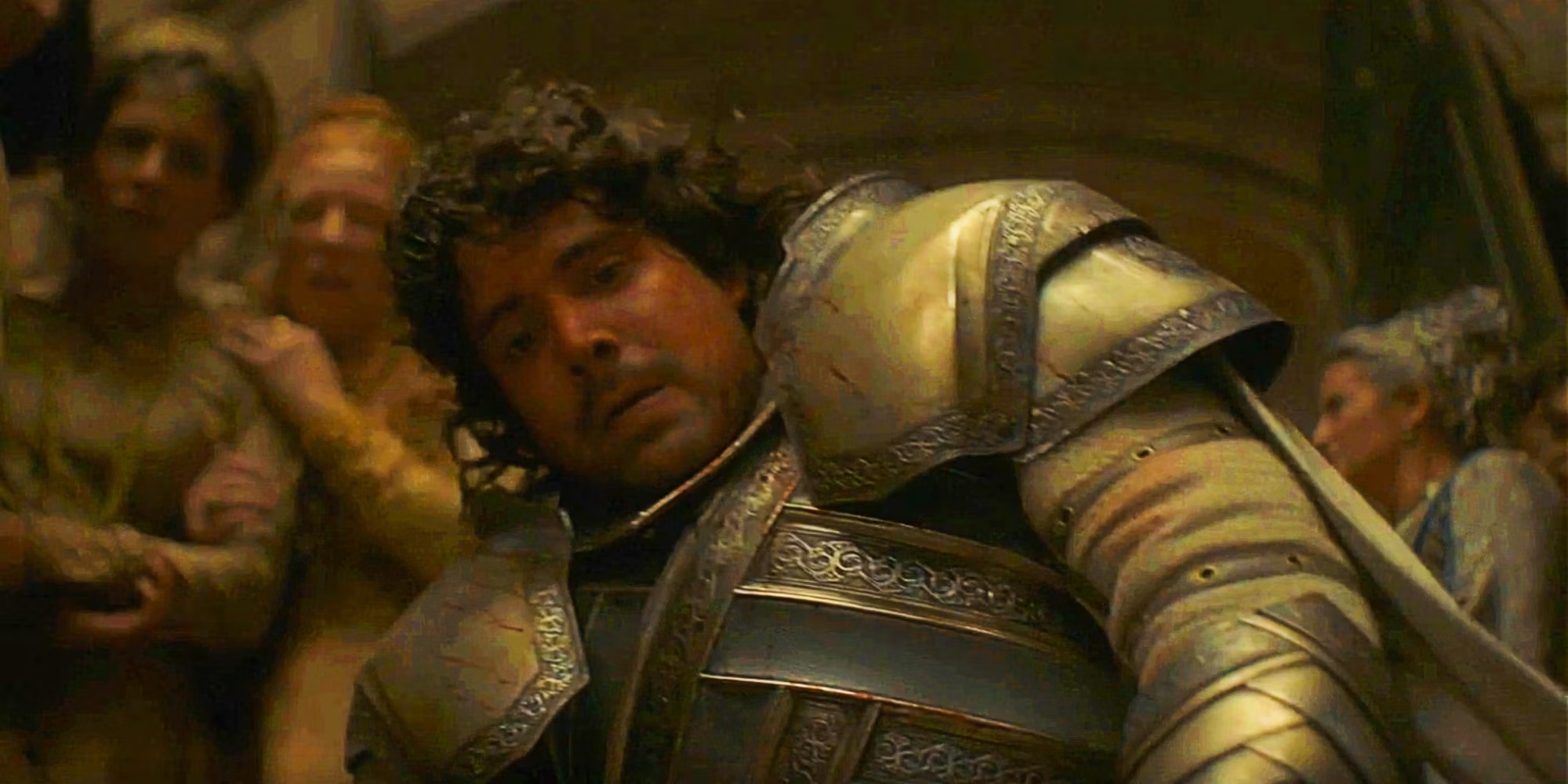Why Did Ser Criston Kill Joffrey?
The world of Westeros is filled with intrigue, political maneuvering, and intense conflicts, where each character plays a significant role in the grand narrative. One of the most shocking events in this saga is the death of Prince Joffrey Baratheon, a character many loved to hate. But what led Ser Criston Cole, the sworn protector of House Hightower, to commit such a heinous act? This article will explore the events leading up to this tragic moment and the implications.
The Context of Westeros
To understand why Ser Criston killed Joffrey, we must first consider the context in which these events occurred.
- Political Turmoil: Westeros is a land of noble families vying for power. The War of the Five Kings was in full swing, with alliances and betrayals shaping the landscape. Joffrey, King Robert Baratheon’s eldest significant position, was also a source of contention.
- Joffrey’s Character: Joffrey was infamous for his cruelty and sadistic tendencies. His reign was marked by tyranny, and many saw him as unfit to rule. As a result, he made many enemies, which would later have dire consequences.
Who Was Ser Criston Cole?
The Rise of Ser Criston
Ser Criston Cole is a notable character in the lore of Westeros, particularly in “Fire and Blood,” the prequel to “A Song of Ice and Fire.”
- Background: Born in the Stormlands, Criston was the son of a lord and a skilled warrior from an early age. His combat prowess quickly earned him recognition and respect among the nobility.
- Knighthood: Criston rose through the ranks to become a knight, ultimately serving as a member of the Kingsguard, the elite group sworn to protect the king.
His Loyalty to House Hightower
As events unfolded, Ser Criston found himself entwined in the politics of King’s Landing.
- Allegiance: He pledged his loyalty to the Hightowers, a powerful family known for their influence in the realm. This loyalty would shape many of his decisions.
- Role in the Court: Criston became a significant figure at court, often caught in the crossfire of various factions vying for power.
The Tension Between Joffrey and Criston
Joffrey’s Cruelty
His cruelty and unpredictability characterized Joffrey’s reign.
- Mistreatment of Allies: Joffrey knew to alienate those around him, including his own family. His abusive behavior towards Sansa Stark, in particular, highlighted his lack of empathy and moral compass.
- Tyranny: Many noble houses began to view Joffrey as threatening the realm’s stability. His decisions often led to chaos, undermining the authority of those who supported him.
Criston’s Growing Discontent
As Joffrey’s actions became increasingly erratic, Criston began to feel the weight of his loyalty.
- Protective Instincts: Despite his position, Criston felt responsible for the realm’s safety and inhabitants. This conflicted with his duty to protect Joffrey.
- Personal Conflict: The more Joffrey indulged in his sadistic tendencies, the more Criston grappled with his loyalty to the Hightowers and his moral obligations as a knight.
The Incident That Changed Everything
The Fatal Encounter
Ser Criston and Joffrey’s tension culminated in a fateful encounter.
- Setting the Scene: During a grand feast in King’s Landing, where nobles gathered to discuss the realm’s future, Joffrey publicly humiliated several attendees, including Criston.
- The Final Straw: Joffrey’s taunts and insults reached a boiling point when he ridiculed Criston’s background and questioned his abilities as a knight. This humiliation sparked a furious reaction from Criston.
The Moment of Decision
In that split second, Criston faced a critical decision:
- His Choices: With the weight of the kingdom’s fate on his shoulders, Criston believed that killing Joffrey might be the only way to restore order and protect the realm.
- The Act: Fueled by rage and a sense of duty, Criston drew his sword and struck Joffrey down before the gathered nobles. The act sent shockwaves through the court and altered the course of Westeros forever.
The Aftermath of Joffrey’s Death
Immediate Reactions
The death of Joffrey was met with a mixture of horror and relief among the attendees.
- Political Fallout: Many factions within the realm seized upon the chaos, using it to their advantage. Those who despised Joffrey celebrated, while his loyalists sought revenge.
- Criston’s Fate: Ser Criston was immediately branded a traitor. Despite his noble intentions, he faced dire consequences for his actions.
The Impact on House Hightower
The Hightowers, Criston’s allies, also faced significant repercussions.
- Loss of Influence: Joffrey’s death shifted the balance of power, and the Hightowers lost their standing in the court.
- Internal Struggles: The aftermath led to infighting among the noble houses as they vied for control in the power vacuum left by Joffrey’s death.
Broader Implications for Westeros
Changing Alliances
Joffrey’s death led to a reshuffling of allegiances among the noble families.
- New Players: Houses that previously stood in the shadows began to emerge, taking advantage of the chaos.
- Strategic Marriages: Families sought new alliances through marriages and pacts, altering the landscape of Westeros forever.
A Shift in Leadership
The incident prompted discussions about the qualities necessary for effective leadership.
- Debates on Kingship: Nobles began to question the qualities of a good ruler. Joffrey’s brutal reign served as a cautionary tale about the consequences of tyranny.
- Emerging Leaders: Figures like Tyrion Lannister and others began to rise as potential candidates for leadership, advocating for a more compassionate and wise rule.
The Legacy of Ser Criston and Joffrey
Ser Criston’s Redemption
In the wake of the events, Ser Criston sought redemption for his actions.
- A Changed Man: Stripped of his title and status, he roamed the realm seeking a way to atone for his role in the death of Joffrey.
- Lessons Learned: During his journey, he discovered the importance of compassion and wisdom in leadership, which shaped him into a more formidable figure.
Joffrey’s Infamy
Joffrey’s legacy is one of cruelty and tyranny.
- A Cautionary Tale: His reign reminds us of the dangers of unchecked power and the importance of ethical leadership.
- Influence on Future Kings: The events surrounding his death impacted how future rulers approached governance.
Conclusion
The question “Why did Ser Criston kill Joffrey?” encapsulates a pivotal moment in the rich tapestry of Westeros. Ser Criston’s decision was not made lightly; it was driven by a complex interplay of loyalty, duty, and a desire to restore order. While the consequences were dire, the incident highlighted the importance of leadership qualities and the need for compassion in governance.
Ultimately, the tragedy of Joffrey’s death is a poignant reminder of the complexities of human nature and the intricate web of politics in Westeros. As the realevolvesve, the lessons learned from this dark chapter will undoubtedly resonate for future generations.
You may also read












Post Comment